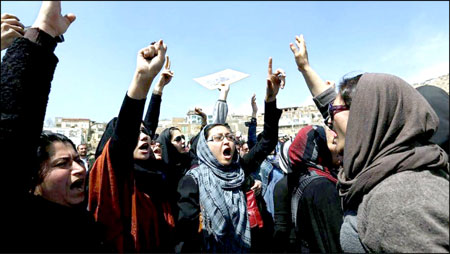The Global Gender Gap Index for 2022 was released by the World Economic Forum (WEF) Wednesday, where it ranks Afghanistan at 146 out of 146 countries – the lowest nation in the list.
The Global Gender Gap index benchmarks the current state and evolution of gender parity across four key dimensions: Economic Participation and Opportunity, Educational Attainment, Health and Survival, and Political Empowerment.
The report assessed gender gap around the world, “providing a basis for robust cross-country analysis. Of these, a subset of 102 countries have been represented in every edition of the index since 2006, further providing a large constant sample for time series analysis,” the report reads.
“In 2022 parity increased in part because women earn slightly more on average (+2%) than in 2021, but also because men earn less (-1.8%) on average than in 2021. Twenty-eight countries have closed less than 50% of the gender gap on this indicator, with the lowest levels of parity reported in Iran (16%), Afghanistan (18%) and Algeria (18%). Overall, Sub-Saharan African and Middle East and North Africa have the lowest levels of income parity, at approximately 23% and 24%, respectively,” the report reads.
But the so-called Islamic Emirate – who took over Afghanistan since last August – defied the report, saying it has included women — based on necessity — in the government bodies as part of their efforts for gender equality and women rights.
“The current government considers all rights of women in Islamic regulation,” said Bilal Karimi, deputy spokesman for the Islamic Emirate. “The women are working in various fields because the government should include women, based on necessity.”
However, the ever-increasing restrictions against women and education for girls in Afghanistan speaks louder itself, as world leaders – including international allies – have repeatedly urged the Taliban government to consider the rights of minorities and women in the country.
“There are a lot of restrictions including inequality,” said Samara, one of the hundreds of girls who faces social restrictions since fall of the former government, as TOLOnews quoted. “The women don’t have access to education and are deprived of social activities.”—Khaama New Press Agency








